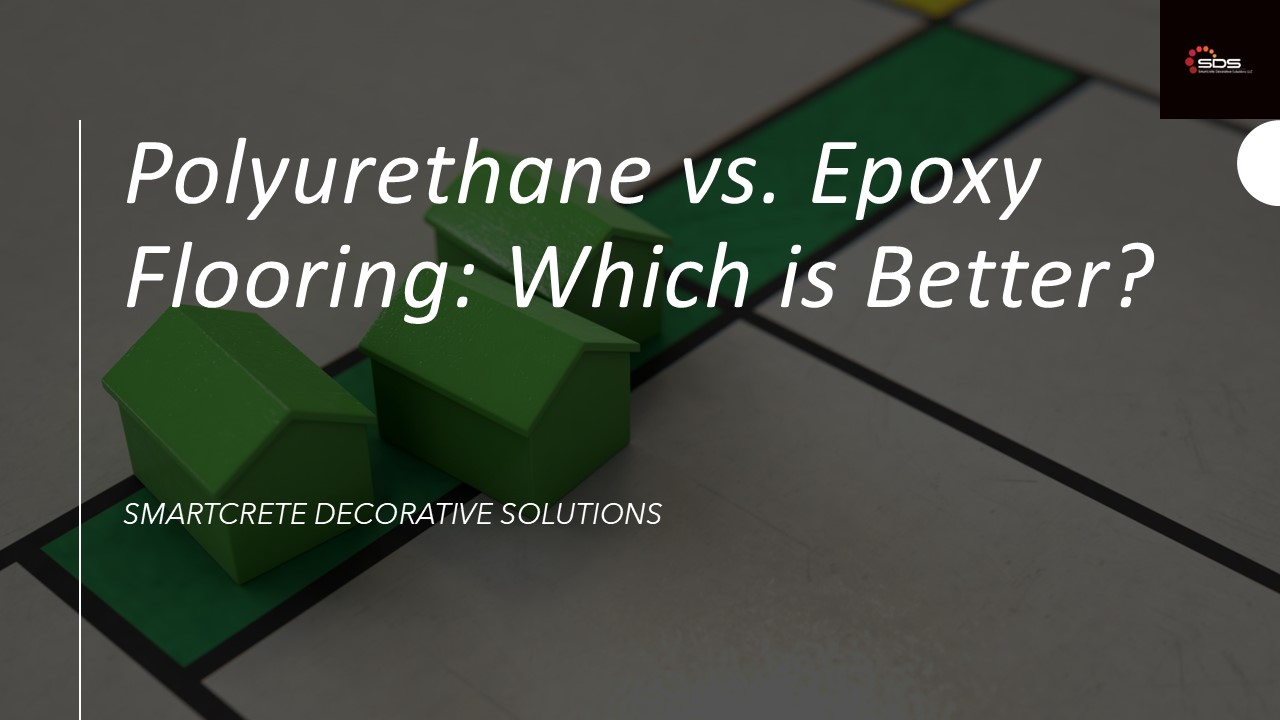Polyurethane vs. Epoxy Flooring: Which is Better? - PowerPoint PPT Presentation
Title:
Polyurethane vs. Epoxy Flooring: Which is Better?
Description:
Compare polyurethane and epoxy flooring in this comprehensive guide. Delve into their unique benefits, durability, maintenance requirements, and ideal applications for various environments. Whether you're looking for flooring that offers chemical resistance, impact protection, or ease of cleaning, this will help you choose the best solution tailored to your specific needs. Visit: – PowerPoint PPT presentation
Number of Views:0
Title: Polyurethane vs. Epoxy Flooring: Which is Better?
1
Polyurethane vs. Epoxy Flooring Which is Better?
- SMARTCRETE DECORATIVE SOLUTIONS
2
Polyurethane vs. Epoxy Flooring Which is Better?
- Polyurethane and epoxy flooring are both popular
choices for residential, commercial, and
industrial applications. - This presentation will compare and contrast these
two flooring types based on their durability,
aesthetics, cost, maintenance, and application.
3
Durability and Strength
- Polyurethane
- Highly durable and resistant to abrasion,
scratches, and scuffs. - Excellent flexibility and impact resistance,
making it suitable for high-traffic areas. - Often used in residential settings and commercial
spaces like retail stores and offices.
- Epoxy
- Extremely durable and resistant to chemicals,
stains, and moisture. - Exceptional strength and hardness, making it
ideal for industrial applications like factories
and warehouses. - Commonly used in garage floors and commercial
kitchens due to its durability and easy cleaning.
4
Aesthetics and Appearance
- Polyurethane
- Wide range of colors, finishes, and textures
available. - Can mimic the appearance of other materials like
wood, stone, and marble. - Offers a more versatile aesthetic appeal for
residential and commercial spaces.
- Epoxy
- Typically a glossy or semi-gloss finish.
- Limited color options and textures.
- More uniform and industrial appearance, often
preferred for commercial and industrial settings.
5
Cost and Maintenance
- Polyurethane
- Generally more affordable than epoxy flooring.
- Requires regular cleaning and maintenance to
maintain its appearance. - May require occasional refinishing or recoating.
- Epoxy
- Initial cost is higher than polyurethane.
- Low maintenance requirements, resistant to stains
and spills. - Easier to clean and maintain, especially in
high-traffic areas.
6
Application and Curing
- Polyurethane
- Can be applied in various ways, including
pouring, spreading, and spraying. - Curing time is relatively shorter, allowing for
quicker installation. - Can be walked on within a few days of application.
- Epoxy
- Requires a more complex application process,
often involving multiple coats. - Longer curing time, typically several days.
- Requires careful preparation of the substrate to
ensure proper adhesion.
7
- In conclusion, both polyurethane and epoxy
flooring offer unique advantages and
disadvantages. Polyurethane flooring is a
versatile and affordable option suitable for
residential and commercial settings, while epoxy
provides exceptional durability and chemical
resistance, making it ideal for industrial
applications. By carefully considering your
specific needs, budget, and preferences, you can
make an informed decision about the best flooring
type for your project.
8
- ThanksYou can find me at
- info_at_sds-me.com
- Phone 971 4 339 5430
- Website https//sds-me.com/































